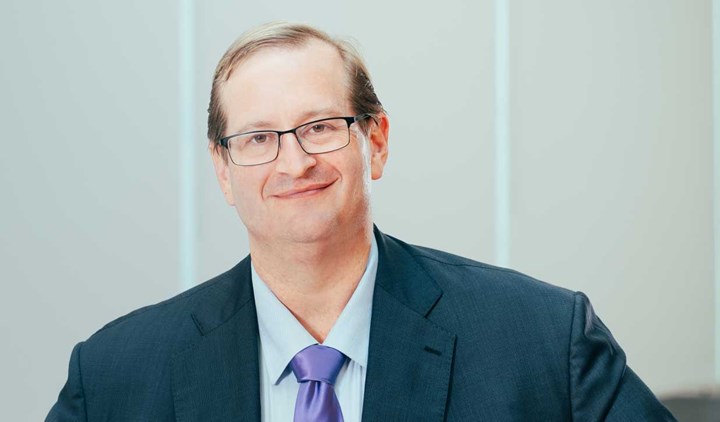By Paola Ramgren | Ivey Research Office | November 14, 2023

Daniel Clark, Ivey Business School
DO YOU HAVE WHAT IT TAKES TO BE AN ENTREPRENEUR?
Daniel Clark embarks on a groundbreaking quest: to break free from conventional boundaries by redefining entrepreneurial orientation
In their paper “Is It Okay to Study Entrepreneurial Orientation (EO) at the Individual Level? Yes!”, published by Entrepreneurship Theory and Practice, Daniel Clark in collaboration with, Robert J. Pidduck (Old Dominion University), G. T. Lumpkin (University of Tennessee), and Jeffrey G. Covin (University of Wyoming) challenge the status quo by extending the concept of Entrepreneurial Orientation beyond organizations to the individual level, uncovering the entrepreneurial potential within people of a certain disposition that has long been overlooked in academic literature.
Daniel reflects on the inspiration behind his research and shares how his work is reshaping the way we think about Entrepreneurial Orientation — from the organizational level to the individual.
FROM PSYCHOLOGY TO BUSINESS: AN ACADEMIC JOURNEY
My academic journey has been a blend of psychology and business, with my initial degree in psychology and three subsequent degrees in business. This dynamic combination has fueled my continuous fascination with unraveling the intricacies of human perspectives and how they approach problem-solving. What truly ignites my passion is the influence of my mentor and supporter, Jeffrey Covin, who has been a driving force behind my academic pursuits. Jeffrey pioneered the concept of 'Entrepreneurial Orientation' during the 80s and 90s. A groundbreaking research that delved into the behaviours of companies that exhibited entrepreneurial traits, such as taking risks, fostering innovation, and proactively seeking opportunities. This journey, sparked by Jeffrey's infectious enthusiasm, has become my own thrilling odyssey. It's a quest to uncover the secrets of entrepreneurial behavior, a journey that promises not just to reshape our understanding of entrepreneurship but to inspire some to embrace the potential or limitations of their innate entrepreneurialness.
CHALLENGING TRADITIONAL VIEWS OF ENTREPRENEURSHIP
Throughout my academic journey under Jeffrey's mentorship, a compelling question continually surfaced within me: If organizations can exhibit an entrepreneurial orientation, can individuals also possess an entrepreneurial orientation? It became evident that academic literature primarily constrained entrepreneurial orientation to the organizational level, and its applicability at the individual level was controversial.
Our goal is to challenge the conventional belief that entrepreneurial orientation is confined to the corporate world. We firmly believe that individuals possess their own entrepreneurial orientation, a notion that has driven our passion for unearthing uncharted territory in entrepreneurship research. Our research is centred on identifying the inherent qualities that define entrepreneurship at the individual level, focusing on those who naturally embody the essence of entrepreneurship.
Ultimately, we are excited about the transformative potential of our work, as it has the capacity to reshape our understanding of entrepreneurialness and, in doing so, help others to better understand their entrepreneurial potential.
DRIVING A MORE INCLUSIVE VIEW OF ENTREPRENEURSHIP
The impact we aspire to make through our research is multifaceted and far-reaching. Firstly, we aim to significantly contribute to the entrepreneurship literature by expanding the horizons of understanding. Our findings have the potential to reshape the way scholars perceive entrepreneurial orientation, bridging the gap between organizational and individual levels of analysis. This is a transformative step forward in the academic realm. However, the true power of our research lies in its practical implications. We envision a world where companies, aspiring to be more entrepreneurial, can leverage our insights to identify and harness the potential of individuals who possess an entrepreneurial mindset but may not necessarily want to embark on their entrepreneurial journey. These individuals represent untapped talent and resources that can drive innovation and growth within organizations.
Entrepreneurship is not a one-size-fits-all endeavor. While some are born entrepreneurs, most individuals face the legitimate question of whether entrepreneurship aligns with their aspirations and temperament. Our research encourages people to engage in introspection and consider not only the financial aspects but also the personal dimensions of entrepreneurship. It prompts individuals to assess their comfort with ambiguity, risk-taking, self-motivation and the uncertainty that comes with entrepreneurship.
Ultimately, we hope to empower individuals to make informed decisions about their entrepreneurial path, whether it means pursuing their own venture or contributing their entrepreneurial talents to organizations. Our research aims to catalyze a broader conversation about entrepreneurship's suitability for different individuals, fostering a more nuanced understanding of this dynamic field and inspiring individuals to embrace their entrepreneurial spirit in a way that aligns with their unique capabilities and aspirations.
CHARTING THE PATH FORWARD
Our upcoming focus involves developing a streamlined scale that companies can use to gauge the entrepreneurial orientation of potential hires through a concise set of questions. This tool will not only aid in hiring but also help us analyze entrepreneurial orientation on a broader societal and global scale.
With the scale in place, our research will delve into how an individual's entrepreneurial orientation impacts their performance in various roles, including within companies and as entrepreneurs. We're also committed to exploring the cognitive aspects of complex, life-altering decisions, particularly within the context of entrepreneurship.
In summary, our journey includes creating a practical tool for assessing entrepreneurial orientation and delving into the intricacies of decision-making, offering insights that extend beyond entrepreneurship into crucial life decisions.